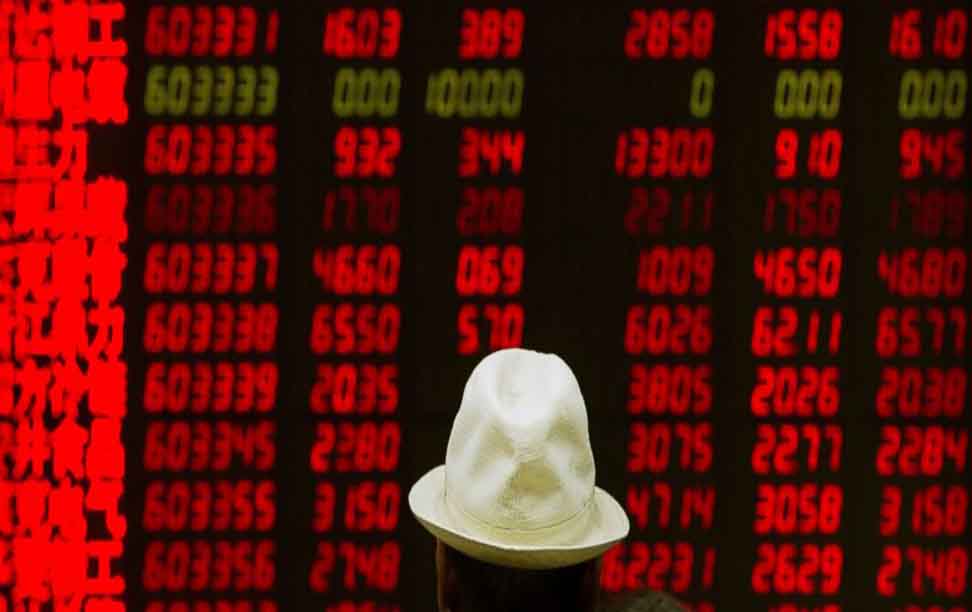December 12, 2022: Asian markets dropped and the dollar edged up Monday after a forecast-beating US inflation reading dampened hopes for a more dovish tilt by the Federal Reserve in its battle against soaring prices.
The producer price index reading for November followed data showing the jobs market remained tight, suggesting the central bank would likely need to keep hiking interest rates.
Investors are now looking to the release later in the day of key consumer price index figures, which comes ahead of the Fed's next policy meeting.
A below-forecast print for October's CPI sparked a rally on markets last month as investors bet on a shorter pace of rate hikes, though concerns about a recession continue to weigh on sentiment.
"An ominous feeling is consuming markets ahead of this week's crucial CPI report and (Fed policy) meeting," said Stephen Innes at SPI Asset Management.
"While headline inflation continues to drop, the top-side beat on PPI expectations suggests that while inflation might climb down the mountain, the slope remains very uncertain."
Policy decisions in the United Kingdom, the European Union and several other economies are also due this week.
All three main indexes on Wall Street fell Friday, and Asia followed suit.
Hong Kong led the way down — shedding more than two percent — having surged last week, while Tokyo, Shanghai, Sydney, Seoul, Taipei, Jakarta and Wellington were also in the red.
The dollar extended Friday's gains against most of its peers, having surged for much of the year owing to the Fed's sharp rate hikes.
Chris Weston, at Pepperstone Group, added that should core consumer prices go above 6.3 percent "then the US dollar should rally hard, and equity should find decent sellers".
"Conversely, a read below six percent would be a surprise and the US dollar bears should find comfort in that."
Investors are also keeping an eye on developments in China as it moves away from the zero-Covid policy that has hammered its economy, the world's second-largest.
The shift comes after widespread protests against the near three-year strategy, though there is concern about the expected spike in infections.
"One official was quoted as saying the mortality rate from Omicron is around 0.1 percent, similar to the common flu and that most people recover within 7-10 days," said National Australia Bank's Tapas Strickland.
"The change in language continues the tentative pivot from China over the past few weeks, both in the rhetoric around the virus and also in the easing of restrictions."
In other trading Monday, U.S. benchmark crude oil gained 56 cents to $71.58 per barrel in electronic trading on the New York Mercantile Exchange. It lost 44 cents to $71.02 on Friday.
Brent crude, the pricing basis for international trading, added 50 cents to $76.60 per barrel.
The U.S. dollar rose to 136.80 Japanese yen from 136.60 yen. The euro slipped to $1.0518 from $1.0537.
– Key figures around 0710 GMT –
Tokyo – Nikkei 225: DOWN 0.2 percent at 27,842.33 (close)
Hong Kong – Hang Seng Index: DOWN 2.1 percent at 19,492.98
Shanghai – Composite: DOWN 0.9 percent at 3,179.04 (close)
Euro/dollar: DOWN at $1.0525 from $1.0534 on Friday
Dollar/yen: UP at 136.88 yen from 136.57 yen
Pound/dollar: DOWN at $1.2235 from $1.2262
Euro/pound: UP at 86.02 pence from 85.90 pence
West Texas Intermediate: UP 0.9 percent at $71.66 per barrel
Brent North Sea crude: UP 0.6 percent at $76.55 per barrel
New York – Dow: DOWN 0.9 percent at 33,476.46 (close)
London – FTSE 100: FLAT at 7,476.63 (close)
AFP/APP
Posted on: 2022-12-12T16:12:54+05:00







